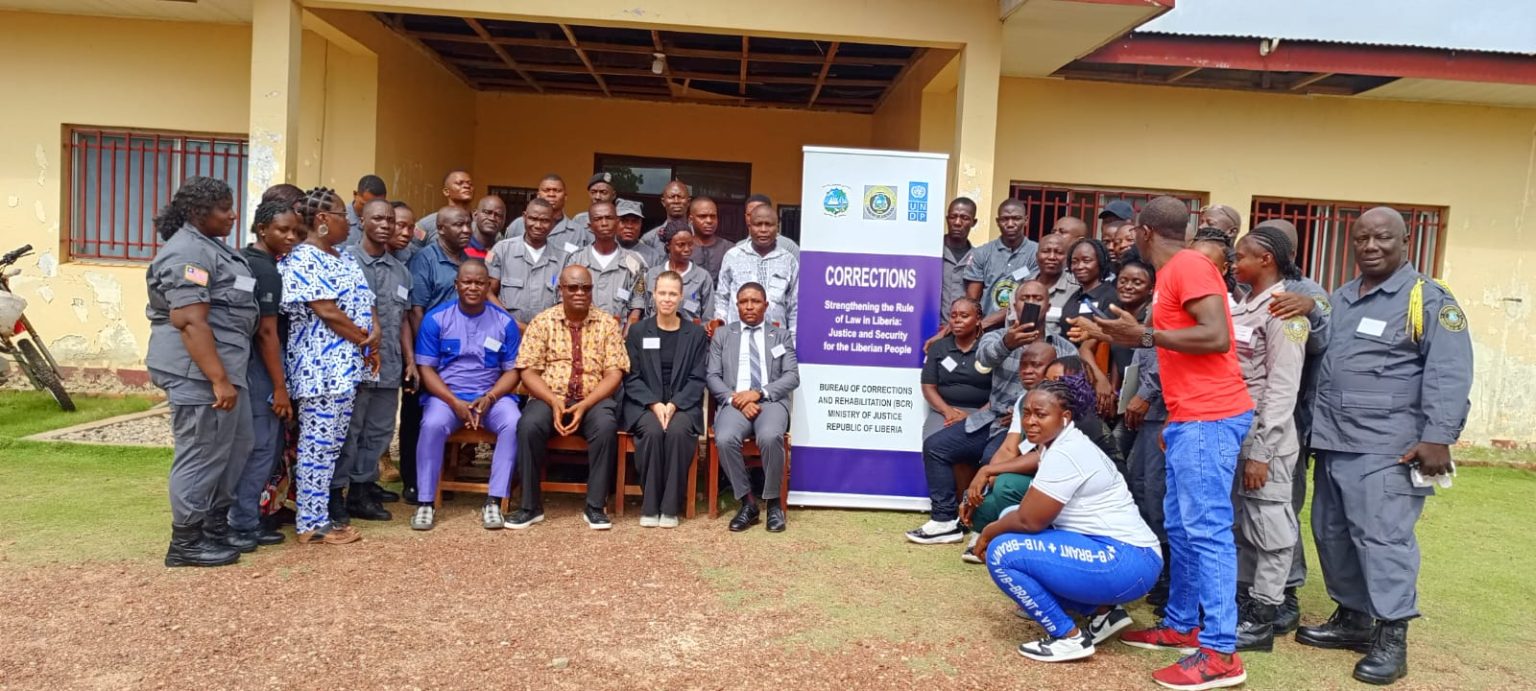The Liberian Ministry of Justice has embarked on a significant initiative to bolster the nation’s correctional system by launching the Bureau of Corrections and Rehabilitation (BCR) Middle-Level Management Training Program. This program, inaugurated at the Gbarnga Regional Hub in Bong County, signifies a crucial step towards professionalizing and enhancing the operational efficiency of correctional officers across Liberia. The launch event witnessed the presence of high-ranking officials from the Ministry of Justice, international development partners, local authorities, and representatives from various security institutions, highlighting the collaborative nature of this endeavor.
The core objective of this training program is to equip mid-level correctional officers with the necessary leadership skills, ethical guidelines, and practical knowledge to effectively manage inmates while upholding human rights standards. This investment in human capital is seen as essential for fostering a more humane and secure correctional environment within Liberia. The curriculum encompasses a wide range of topics, including leadership and ethics, inmate management techniques, human rights principles, conflict resolution strategies, and facility security protocols. By providing comprehensive training in these areas, the program aims to elevate the overall professionalism and competence of correctional officers, ultimately contributing to a more just and effective correctional system.
The selection of the Gbarnga Regional Hub as the training venue underscores the government’s commitment to decentralizing public services and strengthening local capacity. This strategic location enables easier access for participants from various correctional facilities across the country, particularly those in central Liberia. Moreover, it emphasizes the importance of regional collaboration and resource sharing in enhancing the justice sector. The presence of local authorities at the launch event further reinforces the significance of this initiative for the local communities.
International development partners, including the United Nations Development Programme (UNDP) and the Carter Center, have played a vital role in supporting this training program. Their long-standing commitment to justice sector reform in Liberia underscores the importance of international collaboration in strengthening national institutions and promoting sustainable development. This partnership demonstrates a shared vision for a more robust and accountable correctional system in Liberia, one that adheres to international best practices and upholds human rights principles.
The participants themselves have expressed enthusiasm and optimism about the training’s potential impact. They view it as a unique opportunity to enhance their skills and contribute more effectively to the nation’s correctional system. The program’s emphasis on practical skills development and ethical considerations resonates deeply with the officers, who recognize the importance of these aspects in their daily work. The testimonials from participants highlight the transformative potential of this training initiative and its ability to empower correctional officers to better serve their communities.
This middle-level management training program represents a significant milestone in Liberia’s ongoing efforts to reform its correctional system. It complements broader initiatives aimed at enhancing the justice and security sectors, contributing to a more secure and equitable society. Furthermore, the Ministry of Justice plans to expand this capacity-building approach by implementing similar programs for junior officers and senior management, ensuring a comprehensive and sustainable approach to professional development within the Bureau of Corrections and Rehabilitation. This multi-tiered approach will strengthen the institutional framework of the correctional system and promote a culture of professionalism and accountability at all levels. As Liberia continues its post-conflict recovery, initiatives like the BCR training program signify tangible progress towards a more just and equitable future, where human rights are respected and upheld within the correctional system.














